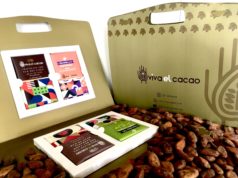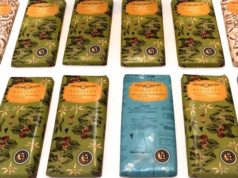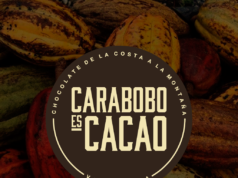Juan Pablo Crespo (juanpamark)
She has more than 300 chocolate squares “and those still missing”, as she is used to saying. She takes care of them as if it were a newly discovered treasure that for centuries slept at the bottom of the Atlantic separating Venezuela and Spain. Helen López Vásquez, better known as Helen Chocolate, is not only the quintessential ambassador of Venezuelan cocoa in the mother country. She is an “evangelist” of fine chocolate beyond which can be made in France, Switzerland or Belgium. She is also a pioneer who aims very high, carrying her origin on her back.
Helen has been living in Spain for ten years and the last five she has been devoted to chocolate tasting, an activity that she started from scratch and now is a reference, even though she develops a diverse range of activities around the sweet.
This Caracas native is also a chocolate globetrotter because she has attended any major fair: Paris, London, Belgium, Tokyo … Be steeped in the movement Bean to Bar and fine chocolate with the cream of the crop of these sectors has been her goal to attain. “The idea is to create the school of Bean to Bar next year in Spain. I see myself setting up bean to bar chocolate factories.
She claims that when she arrives at a fair and someone finds out that she is from Simon Bolivar’s country, she is approached looking for a way to get Venezuelan cacao.

Background
Helen Chocolate is a journalist graduated from the Central University of Venezuela who developed her gastronomic source after graduating, although she holds a doctorate in International Relations. She came to Spain with a six months scholarship, and to be able to extend the student visa she also studied Marketing and Media Language.
His family is from Rio Caribe, Sucre state (Venezuelan north-eastern coast), characterized by having exquisite cocoas. Although he grew up in Caracas, she pleasantly remembers those visits to the picturesque town. “There I was, knowing cocoa and its land. It is an intense scent that remains in the memory. In the cocoa haciendas there is a knowledge that no book contains “.
–You say you have the best job in the world, although those who love their work say the same, in your case, how do you show yours is the best?
-Well, firstly, I do what I really like and secondly, I designed this work. Nevertheless Spain has a very important gastronomic culture, tasting practically everything, there was no one dedicated only to taste chocolate. Thus, I identified the opportunity to follow a career path and become a pioneer, even though Spain is one of European countries with less consumption of chocolate. Chocolate is also the only food source of happiness.
– And how did the idea of these tastings arise?
-My tastings arose in Venezuela, where I was spending Christmas holidays. After being seven years in Spain I returned three times in a row, in which I could attend different chocolate tastings. In this way I was aware that Venezuela has quite excellent chocolate, something that is not very frequent in other places. I was bitten by the bug. In Spain I started the tastings for charitable purposes. I raised funds to send medicines and toys for children of Venezuelan schools. The tastings worked and I wondered why not dedicate myself to this that I liked all my life?
At first I offered only Venezuelan chocolates brought by friends or acquaintances in their suitcases. I was called from Maiquetía because they felt identified with my initiative and started to send me chocolates. For instance, I offered Icoa from El Rey, the best white chocolate in the world, Irapa, also from El Rey; Canoabo by Franceschi, another of the best dark style on the planet, as well as some of the Bean to Bar movement like Mis Poemas and those Cocoa of Origin by Maria Fernanda Di Giacobbe.

Around the world
The idea is to walk around and get to know the excellent chocolate made on the planet, beyond France or Switzerland. Pardon me! the Venezuelan flavour is here …
–And then?
“Then I started to attend the world’s chocolate fairs to get steeped in the Bean to Bar movement and fine chocolate. I went to Tokyo, Paris, London and Belgium. I began to understand that I could talk about chocolate, Venezuela and Latin America.
Then I have created Around the World in 8 chocolates to show people that not only in Switzerland, France or Belgium there are chocolates. The sensorial journey includes Colombia, Ecuador, Hungary, Iceland, Lithuania, Peru, Vietnam and Venezuela. We also pass through France because this country has many chocolates made with cocoa from Latin America.
We finished the journey in fine Venezuelan chocolates, specifically with Franceschi Chocolates. We finished with Venezuela because when we did it the other way around, most countries did not give a good impression, in a manner of speaking, because the Venezuelan chocolate overwhelmed. It was to set the bar too high. Venezuelan cocoa happens to yield many tastes. People discover nuts, wood, liquorice, citrus among others. Let’s hope that Venezuela have the power to export its chocolates and cocoa on a large scale. When I attend a fair and they know that I am Venezuelan, they approach me looking for the way to get our cocoa.
I also offer more customised tastings as well as we make workshops of squares for children.
-Spain and Europe in general are lands of great pastry chefs … Have any of them asked you how to get more Venezuelan cocoa?
– Yes, but it has been mainly those people from the world of Bean to Bar. The fact is that Spanish pastry chefs a great deal, work with Valrhona and they are difficult to change because Valrhona is easy to work and is designed for patisserie. There is not much innovation, barely this year Joan Roca appeared to make his chocolate to show it in San Sebastian Gastronómika, with beans from Peru and, by the way, a Venezuelan adviser. In Spain they also work a lot with Chocovic basis.
– And what do you say to those entrepreneurs of the Bean to Bar movement who do not get Venezuelan cocoa?
– Sometimes it’s discouraging. I have tried to put them in touch with possible dealers, but it has been difficult due to the whole exportation issue. It is frustrating. I am sent small samples to do my work which I share, for instance, half a kilo for taste. When they taste it they ask me how to get a ton of Venezuelan cocoa?
– And if you had the power to take some measures to improve the export of Venezuelan cocoa, what would you do?
– First, the exchange control is one of the great tragedies for any economy. Then there is the difficult exporting process. At this point, the procedures must be eased. It does not make sense to get through almost 80 procedures to be able to export finished products. It is necessary to purge Venezuelan customs processes. Of course, this does not have priority over other problems as basic as it is the access to medicines.

A look back to the origin
Venezuela has in its cocoas of origin a window of opportunity. Our chocolates have no ceiling.
“Going back to chocolate, is our strength based on its origin?”
“Yes, we now have a tremendous opportunity because the world of chocolate is much more interested in the subject of origin. For the first time on the planet, people are at least moderately interested in knowing where the cocoa, used to make the chocolate they consume, came from. However, we must keep in mind that in Venezuela we have been speaking about origin for a long time. The country has been printing the names of its chocolates on their packaging. And this is precisely what makes Venezuelan chocolates well recognised by their origins. At international fairs it is spoken about Rio Caribe, Carenero, Sur del Lago …, but also about Esmeralda and other countries.
“What do you want to attain with your job?”
“I have always said that Spain has a debt to pay with its chocolate. Spain was the country that created the mixture of cocoa and sugar and I always repeat that to all the Spaniards. It has to defend it, in addition to developing a marketing strategy around it. Previously there were a great number of chocolate factories here, but many are now abandoned, and what has been done is to buy a lot of chocolate coating to France or Belgium. Then, I visualise myself arousing and strengthening love for chocolate, thus people increasingly join the global Bean to bar movement. The idea is to create the school of Bean to Bar in Spain next year. I envision myself setting up bean to bar chocolate factories on the side of the square or on a small scale.
– And how do you see the Bean to bar movement in Venezuela?
– Very powerful. However, one of the hardest challenges that we will face ahead is to live in a country full of cocoa, but without enough sugar. In this sense, we are before a very important movement which will be maintained as far as the raw material can be obtained. In Venezuela we are living a great paradox which, I think, does not happen in any other country: The price of sugar is higher than cocoa one. We would also miss to take the initiative of including it into the salty cuisine.

– What will Spanish chocolate makers have to learn from Venezuelan chocolate makers, and vice versa?
-From Venezuelans, they must learn about the origin. Especially in Europe they should understand that a chocolate of origin could be as good as a Swiss chocolate made with raw material from Latin America. People are not aware that it is possible to have an excellent coating with Chocolates El Rey. Venezuelans, meanwhile, should analyse how Spain has become one of the countries with the highest number of products with Denomination of Origin. We refer to wine, butter, oils, oranges, almonds … I think they have over 400 denominations, a good way to promote the country. Hence, we must work harder for appellations of origin, not just for cocoa, but for a long list of products.
Helen Chocolate has Venezuelan cocoa streaming through her veins and holds chocolate in her heart. She is an entrepreneur who aims high.









Muy buena entrevista. Felicidades a Viva el cacao y a Helen López Vásquez por vuestra labor: extender la cultura del cacao y el chocolate venezolano. Una pena que en España la gente tarde en comprender lo que otros países ya han descubierto .
Gracias, esperemos que así sea. Cada país tiene sus propios tiempos, todo llega en el momento justo.
Un abrazo
Bravo Helen .
Comments are closed.